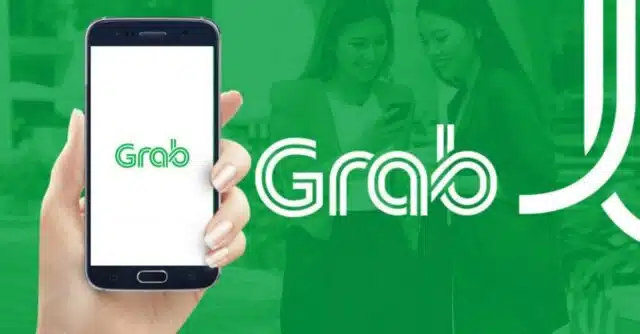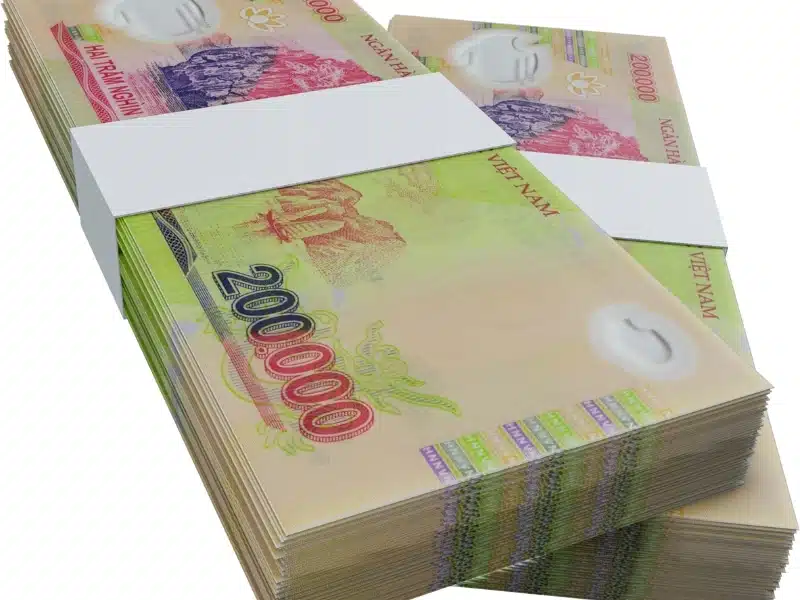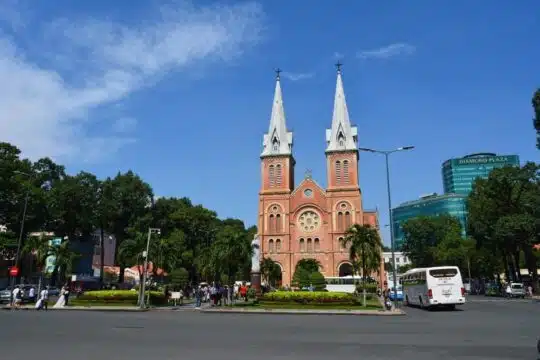Congratulations! You planned, you navigated the entry restrictions, you decided which city to live in, you packed, and you actually moved to Vietnam. Perhaps now you’ve just started teaching, working, and/or setting up your new life there. But there are still a few more things you need to do!
In this article, we will guide you step-by-step on what to do once you moved to Vietnam. From looking for a new place to live, getting around, managing your utilities, and more. Moving to a new place is like moving to a new school, you need to know where is the cafeteria, the bathroom, the gym, the best area to sit in the yard school, or the best stand to buy your lunch.
Here you will find out the next step you need to do that will help you settle, build a network, and move forward. I also recommend you read this guide on how to move to Vietnam.
Getting Your Work Permit
Assuming you have now work and an apartment, the next thing you should do is to get your work permit. This will allow you to get a temporary residence permit card and enjoy its benefits. If you’ve already been hired by a school, they will most likely guide you through this process or do it for you.
For all the details, read our guide to getting a work permit in Vietnam.
Getting Around
Once you’re settled in, it’s time to start exploring (or perhaps head to your new job!) How you get around will depend largely on where you’re living.
Are you in one of the biggest cities in Vietnam (i.e. Ho Chi Minh or Hanoi), or are you in a smaller city or town? And how close are you to the places you need to go, such as your school or place of employment?
The answers to these questions will of course determine how you get around. If you’re able to walk to everywhere you need to go, then great. But in the heat, that isn’t likely to be very far. Here are some other options:
Motorcycle: to buy or not to buy?
By now, you’ve likely noticed the zillions of small motorcycles, or motos, driving around. Tempted to get one yourself? Sure, it comes with some risks, but it’s also relatively affordable, and they are great fun to drive around!
Most expats and locals drive their motorbikes. If you are keen to do it too, you can rent or buy a motorbike easily for as cheap as $250-$350 for buying and $50 for renting.
Read everything you need to know about it in our guide to motorcycling in Vietnam. Also check out these fun motorcycle routes!
Install the Grab app on your phone

Grab is a popular transportation app in Vietnam, for cars or even moto taxis.
You’ll need to add a payment method. And then voila! A ride whenever you need it, no cash required. While the prices are reasonable, if you use this as your main daily mode of transportation, the costs will add up. So you will also want to consider other modes of transportation for daily commuting.
Here is a list of other mobile apps in Vietnam that may be useful for you.
Regular taxis, buses, bicycles
There are regular taxis but a lot of them are believed to be cheating the meter or trying to scam the passengers. Mai Linh is one of the more trusted taxi companies in Vietnam, although even they can be hit or miss.
There are many local buses, as well. They are dirt cheap. But the challenge here will be figuring out which one to take, when it comes, crowding, the occasional chicken on the bus in rural areas, and so on.
There are a few locals and expats who get around through their pushbikes, it’s not safe because there are no bike lanes or stoplights. Meaning you will have to be in the same lane or road as the motorbikes, cars, and trucks
RELATED POST: Transportation in Vietnam
Setting Up Your Finances

If you’re here to work, then eventually you’ll get that first sweet paycheck. Before that happy day comes, you’ll want to set up a local bank account.
Set Up a Bank Account in Vietnam
If you will be working on official job in Vietna, you can open a bank account at almost any bank in Vietnam. You’ll need to present your work permit, business visa, job contract, apartment lease, copy of your passport, and a passport photo. Here’s our guide to opening a bank account in Vietnam.
The requirements may vary from bank to bank. Often your school or place of employment will guide you here or send you to their preferred bank.
Although you have an option to receive your salary either in cash or through your bank, it’s a lot easier to have a local bank card.
If you plan to send money back to your home account, read our guide to sending money out of the country.
How much will you be saving vs. spending? Find out in our guide to the cost of living in Vietnam.
Networking and Expat Community
It’s time to make some new friends! Besides your new co-workers and/or classmates, here are other ways.
Join Facebook Groups
I know some people prefer not to use Facebook. However, Facebook groups are simply the best way to become connected in the expat community, find jobs and apartments, and of course to build your own new circle of friends.
Keep in mind that there are a lot of rude expats in these groups, plus locals selling services. Here’s out list of the best Facebook groups about Vietnam.
Shopping
The first time trying to find familiar foods or household items you need in a new country can be intimidating. Often, having a fellow expat who has been there a whole already to show you the ropes is ideal.
For adventurous types, just start exploring your new neighbourhood and see what you can find! Here are some more suggestions:
Best grocery stores
You should also find the best grocery shop for your needs. If you are vegan, have any specific allergy or have a good diet, your best bet is to ask the expat community for their suggestions. Find out where is the nearest, cheapest, and their opening hours.
These are the biggest supermarkets in Vietnam, although some of them are available in the north but not in the south or vice versa.
- Big C
- Mega Market
- Coop Mart
Getting a Pet?
Getting a pet is a big commitment, and probably isn’t right for anyone thinking of only staying in Vietnam for a few years or less. If you do want to adopt a rescue pet in Vietnam, see our list of rescue centers and vets in Vietnam.
Communication
We can’t live without our phones, right? Chance are you’ll want to be connected from the moment you arrive.
Mobile Sim Card with Data
It goes without saying that you need a local sim card to be able to navigate and communicate smoothly. You can pick up a local SIM card from countless shops – just remember to bring your passport, phone, and cash.
In the shop, you will be asked if you want a sim card for data only or the one where you can make calls and text. You can choose how much data you want for 30 days plus how much credit you want to have which you can use for texts and calls. For example, 1GB data + 40,000 VND worth of credit.
An even easier way is to buy one on Klook and they will bring it right to you. If that one doesn’t meet your needs or location in Vietnam, just search on Klook, as there are many others.
Read more about this post on how to get a Vietnam SIM card.
Start Learning Vietnamese!
Even you don’t see yourself learning Vietnamese, you should know the basic phrases like thank you, hello, how are you, or sorry. It’s a courtesy but also can help your daily life routine. Learn a few words in the food section, services, and verbs, and other basic every word that you normally use.
GoogleTranslate can be a savior, but there are many other apps and videos out there to get you started on actually learning the language. The more you learn, the easier your life in Vietnam will become!
I really hope that you found this article about what to do once you moved to Vietnam useful. If you have anything to add, let me know below the comment section below!
Tips for Trip Success
Book Your Flight
Find an inexpensive flight by using Kayak, a favorite of ours because it regularly returns less expensive flight options from a variety of airlines.
Book Your Hotel or Special Accommodation
We are big fans of Booking.com. We like their review system and photos. If we want to see more reviews and additional booking options, we go to Expedia.
You Need Travel Insurance!
Good travel insurance means having total peace of mind. Travel insurance protects you when your medical insurance often will not and better than what you get from your credit card. It will provide comprehensive coverage should you need medical treatment or return to the United States, compensation for trip interruption, baggage loss, and other situations.Find the Perfect Insurance Plan for Your Trip

Rahul
Monday 2nd of July 2018
Thanks Isabelle. It's a pain to have to deal with cash all the time to be honest ... Most of the info I found on the net on this was conflicting - perhaps I'll just go directly to the bank websites!
Rahul
Sunday 1st of July 2018
Hi Isabelle - Can one open a bank account as a "tourist" (on a long term tourist visa) in Saigon (or the entire country, for that matter)? It's no longer possible for most expats to open accounts in China for one, these days, without work permits/contracts - not sure about Vietnam. Have been reading conflicting reports on the Internet, so thought I'd ask ...
Isabelle
Sunday 1st of July 2018
I was able to do that back in 2015. But now, I heard it's a lot harder, most banks requires a work permit.